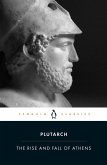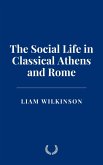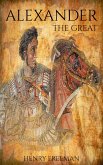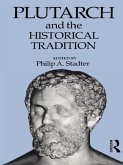This book delves into the historical, philosophical, and cultural contexts that shaped Plutarch's writings, analyzing the profound relationship between his ethical philosophy and his views on governance. It examines his focus on virtue as a central component of leadership, his deep reflections on the decline of the Roman Republic, and his critiques of both Greek and Roman moral failures. Furthermore, it highlights the ways in which Plutarch's ideas influenced key thinkers throughout historyfrom the Renaissance humanists to Enlightenment philosophersby providing a bridge between classical antiquity and modern thought.
The legacy of Plutarch's works is traced through their impact on political theory, literature, biography, and ethics. His moral reflections on the lives of historical figures, especially his emphasis on the interplay between individual character and historical events, continue to resonate in contemporary debates about leadership, moral responsibility, and the pursuit of virtue. Ultimately, this book underscores the timeless relevance of Plutarch's writings in understanding human nature and the moral dimensions of power, offering valuable lessons for modern leaders, thinkers, and readers seeking guidance on ethics, governance, and personal development.
Dieser Download kann aus rechtlichen Gründen nur mit Rechnungsadresse in A, B, CY, CZ, D, DK, EW, E, FIN, F, GR, H, IRL, I, LT, L, LR, M, NL, PL, P, R, S, SLO, SK ausgeliefert werden.









